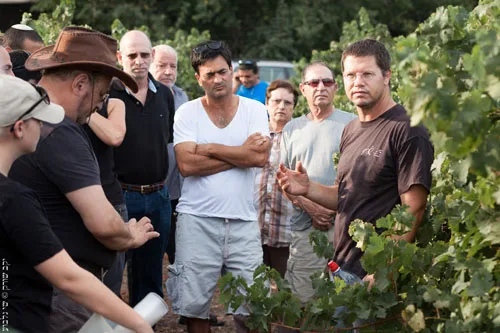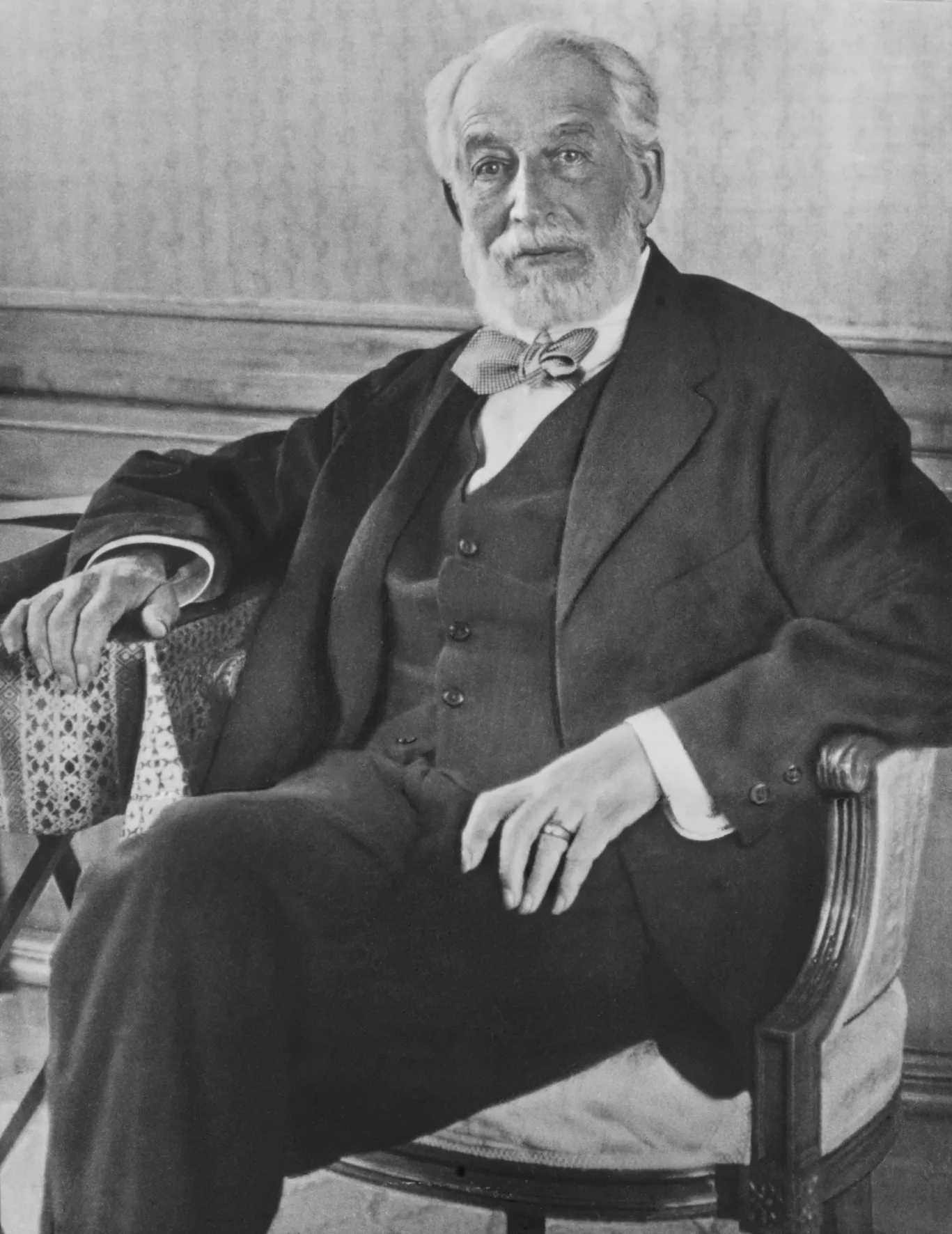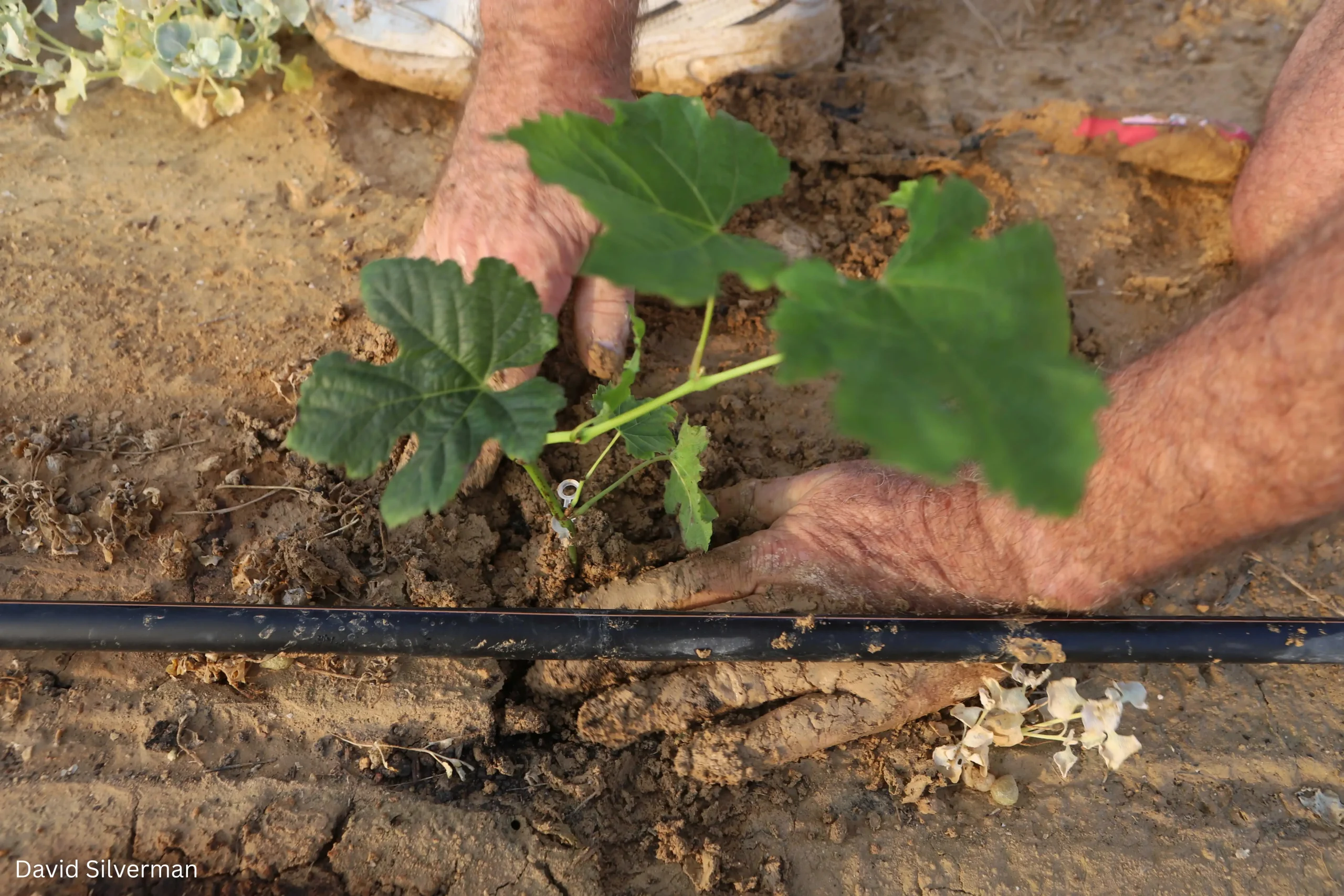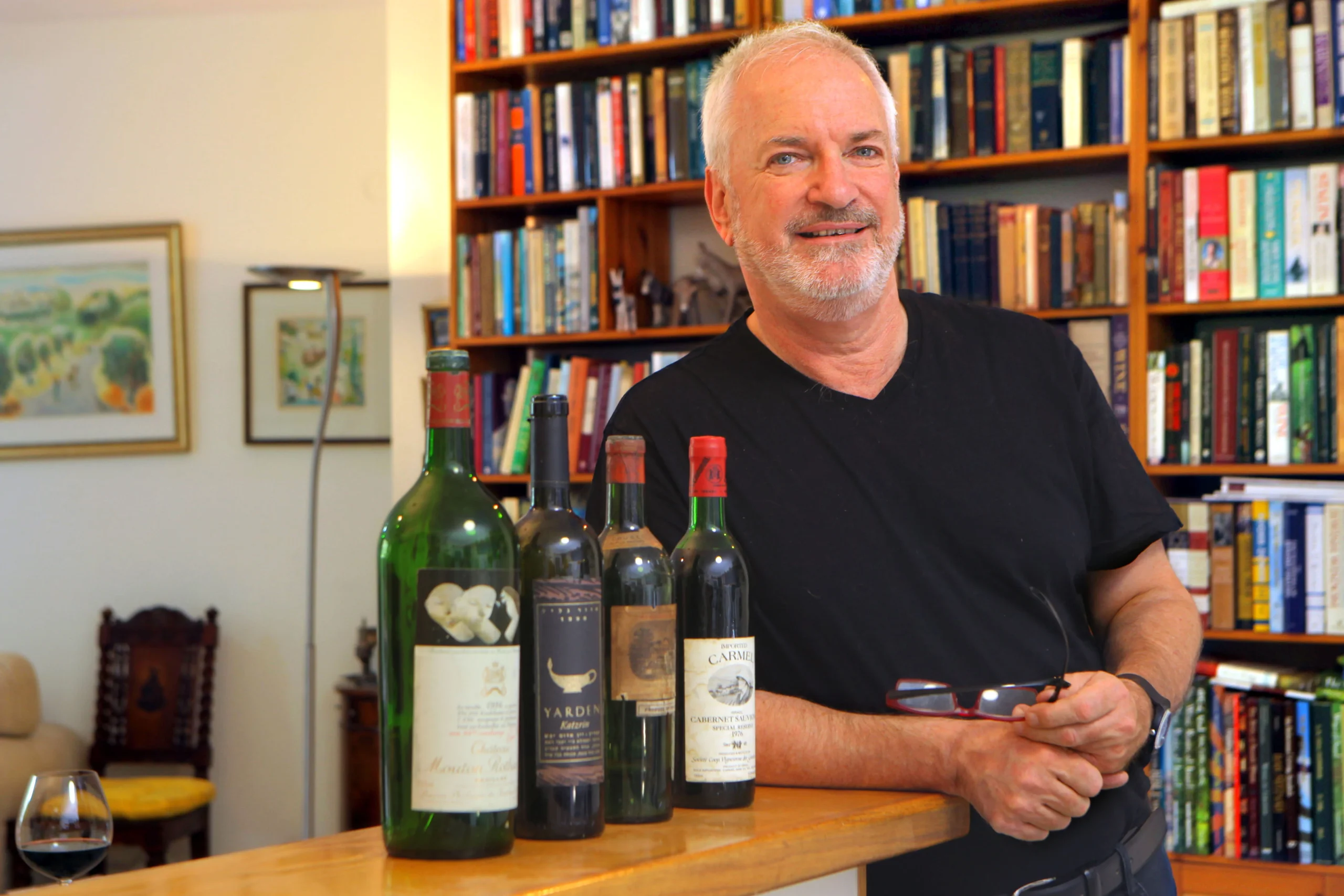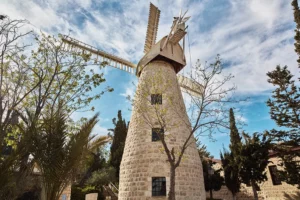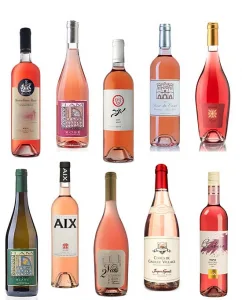To the question how many wineries are there in Israel, it is very hard to give a concrete answer. I know that the largest three wineries have something like 70% of the Israeli wine market. Furthermore, the largest ten have well over 90% of the market. These are: Carmel, Barkan-Segal, Golan,Teperberg, Tabor, Binyamina, Tishbi, Recanati, Dalton and Galil Mountain.
There are by my reckoning about forty, what I call, commercial wineries, harvesting over 50 tons of grapes a year. Beyond this there are hundreds of boutique wineries, garagistes and domestic wineries. Literally, hundreds. No-one can possibly be up to date, as new wineries are opening every day.
The small winery phenomenon is spreading like the fiercest epidemic. It is not enough for some wine lovers to enjoy drinking wine, it seems many also want to get their hands dirty and to go through the unique experience of making wine.
There is a quiet, unassuming person in the Judean Shefela, who is more responsible for fanning the flames of this epidemic, than anyone else. This is Nir Shaham. He is a rare animal for an Israeli, being quiet and modest. Many would not know his name or recognize him. Yet he has arguably had more influence on the plethora of new wineries than anyone else. Thousands of students have passed through his hands, and 150 of them he estimates have continued to make wine.
Many people like food, but have never been chefs. I love wine but have never made wine myself. However, do you yearn to be a winemaker or to have the experience of following the winemaking process from the vineyard to the bottle Do you get excited at the camaraderie and the sense of optimism that pervades the harvest Or yearn for the smells of the fermenting wines during fermentation Or do you simply like the idea of juggling different components of a blend, and coming up with a definite result in a bottle which solely belongs to you
If the answer to any of these questions is yes, then I recommend you to the Soreq Winery Winemaking School, owned and managed by Nir Shaham.
There you will learn not only to make wine, but also to enjoy and appreciate it in the most fundamental way. You will work in the vineyard, winery and laboratory. There is the necessary theory but much of the work is practical. The courses even touch on marketing and on how to sell the wine you have produced.
Nir Shaham is not a winemaking evangelist saying look at me or follow me. Rather he is more interested in finding the truth and essence in each individual wine and he is interested in helping his students to find their own truth. He wants everyone to find within themselves the wine they want to make. That is the true strength of a successful teacher. This is where his uniqueness shines.
He organizes the longest running wine course in Israel, which existed well before Tel Hai College’s Cellar Master Course or Ramat Gan College’s Wine Academy Course.
The story started in Tal Shahar, a charming moshav, not far from Latroun. There his father Yossi, owned a vineyard that grew Cabernet Sauvignon and Merlot. The fruit was normally sold to Carmel and Tishbi. He was simply an agriculturist, who had a vineyard. However this was not a wine drinking family yearning to make wine. Shaham remembers they used to add grapefruit juice to wine to make it drinkable.
One day, Barry Saslove, another remarkable wine personality, came to his father and suggested they start a winery and hold winemaking classes. Now Saslove was also a very influential educationalist of Israeli wine and Shaham is quick to give credit to him for steering the family in a new direction.
So suddenly this family that does not really like wine, but has a very good vineyard, became a winery, almost by default. Winemaking is not something one wakes up in the morning wanting to do. Most people remember their first wine, and it is usually a simple one. The journey to become wine lovers is a gradual progression. Then they eventually work up to the stage where they actually want to make the stuff! It is a step by step process.
With the Shaham it was the opposite. The family was an antithesis of a wine drinking family. They had to learn to make wine and become winemakers and yet it was only through this process, that they learnt to love wine & appreciate it.
After Barry Saslove moved on to begin his own boutique winery, the family was assisted by the consultant winemaker Arkadi Papikian. These two people helped set Nir Shaham on his way as a winemaker and winemaking teacher from the mid to late nineties onwards. In 2004 he took over ownership of the school and winery.
There are many wine courses in Israel but none encourages the student winemaker or passionate wine lover to get so close to the earth, tank and barrel. So when they receive a wine at the end of the process and they put their own label on it, it really is their own, with their own fingerprint.
Shaham encourages individuality. He cajoles students to think for themselves. To decide what they want to do with what nature has given them. He wants wines of passion, creativity and individuality.
For example in 2013, his school harvested 48 tons of grapes, from seven separate vineyards in four different wine growing regions, ranging from the hills of the Upper Galilee down to Mitzpe Ramon, in the deepest desert. He made wine from eleven different grape varieties. This is not someone who has the luxury of teaching out of a book. Nor is it a finite learning process with an end. Shaham says: “when a student starts to learn with us, he begins a journey that lasts a lifetime.”
The unpretentious Shoham has some innovative projects. Foremost is the one where he makes wine on an annual basis for the quality restaurant chain R2M (Coffee Bar, Brasserie, Montefiore Hotel, Delicatessen etc.) The difference is that he is not the winemaker. It is the employees who make the wine from deciding on the vineyard, physically harvesting the grapes, until the final blending. Instead Shaham is the coach or conductor, encouraging and prompting the group to reach the end result they want.
He organizes an annual festival for domestic wineries. It is a wonderful day out for wine lovers and an opportunity to meet the real wine enthusiasts and the winemakers of tomorrow. It is also an opportunity for home winemakers to get feedback on their wines.
Now he is also working in a project called ‘Three Corners’ with winemakers from totally different areas of the globe, (California, Costa Rica & Israel), in a particular way.
He also has another project in the works with Japan.
No-one should forget Soreq is also a very fine winery, not just a school. It is situated at Kibbutz Nachshon. It was founded in 1994, and so is celebrating twenty years. I enjoyed having the opportunity to taste the current wines.
Soreq Rose 2013
Made from Grenache and Carignan, this rose has a beautiful, delicate salmon pink color. It has an enchanting but understated berry nose, but with a fresh, crisp acidity.
Soreq Syrah 2010
A well balanced Syrah, from the Safsufa vineyard, in the Upper Galilee. The wine has a very nice aroma of red berry fruits, cherries and an understated backdrop of oak. It has a chewy smoothness which I liked.
Soreq Cabernet Sauvignon 2010
Best of all is this well balanced Cabernet Sauvignon from the Judean foothills. It has good blackberry and blackcurrant fruit, with a green bell pepper tone. There is a full mouth feel in the middle palate, and nice length on the finish. Well defined.
Adam Montefiore works for Carmel Winery in Israel. He regularly writes about wine
for Israeli & international publications.


